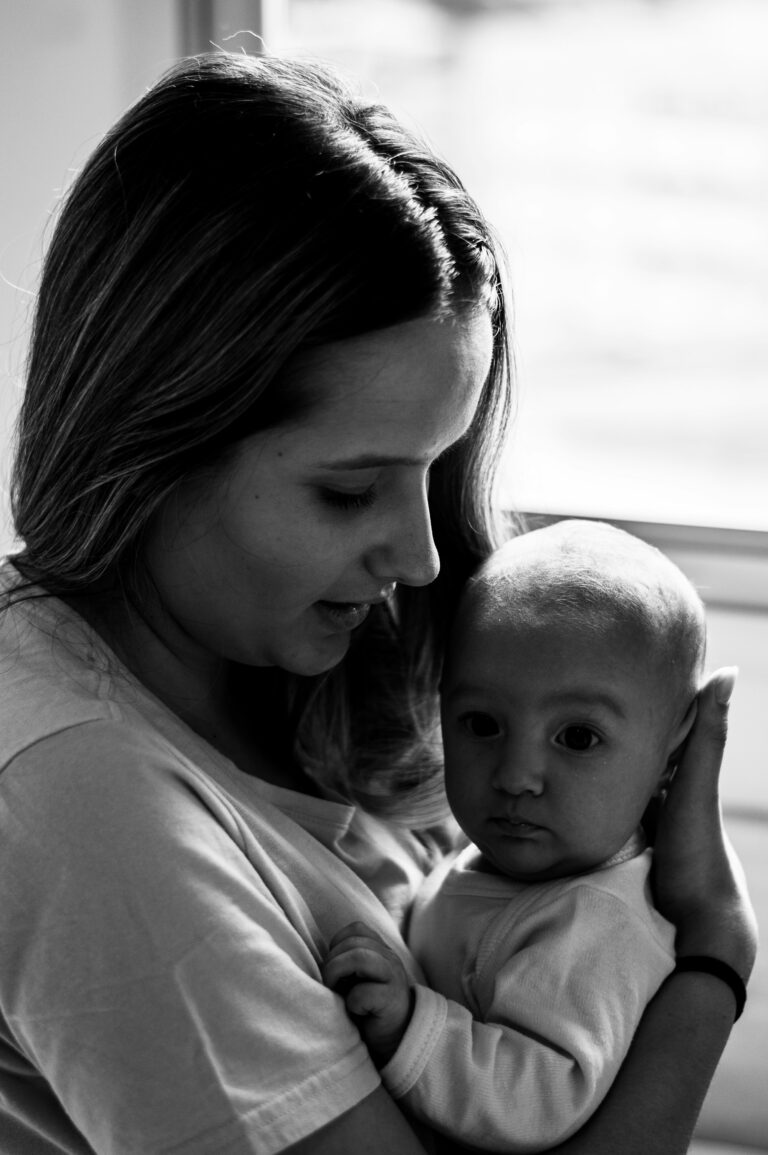Striving for excellence as a parent—seeking to be calm, patient, present, and always doing right by your child—can feel like both an aspiration and an invisible weight. Does your inner voice demand an ideal of flawless parenting? Do social media images or well-meaning comments from others turn even ordinary moments into performance reviews? Welcome to the paradox of parental perfectionism: a phenomenon where the pursuit of being the “best parent” triggers relentless self-critique, anxiety, and exhaustion, all in the name of love. The stakes feel high, impacting not only your emotional balance but your child’s development: persistent worry, elevated cortisol (“stress hormone”) levels, and tension in parent-child relationships can sneak in quietly. How can you tell healthy ambition apart from harmful pressure? Which signs deserve your attention, and what scientific evidence guides us toward balance? Let’s explore together practical solutions, supportive perspectives, and methods you can use to foster family resilience—without sacrificing well-being along the way.
Understanding Parental Perfectionism: Roots and Manifestations
Parental perfectionism is not merely about wanting the best for your child—it is a psychological pattern rooted in self-imposed high standards, often amplified by societal messages and the urge to present a flawless family. Driven by a mix of achievement motivation, fear of judgment, and sometimes echoes from one’s upbringing, this form of perfectionism shows up in several ways:
- Self-oriented parental perfectionism: The parent believes, “I must do everything right with my child, always.”
- Other-oriented perfectionism: The expectation that children or a co-parent should meet rigid standards—and frustration when they don’t.
- Socially prescribed perfectionism: The sensation that everyone is watching, judging, and expecting perfect family performance.
But where does this come from? Medical research in developmental psychology points toward early family narratives: parents who grew up with caregivers emphasizing compliance, achievement, or image, or who recall frequent criticism, may carry these patterns forward. Advanced imaging of brain activity in anxious parents even shows heightened responses in areas linked to social comparison and error monitoring. Social media compounds these triggers, creating a landscape where comparison is omnipresent. Yet the consequences are not abstract: chronic stress related to parental perfectionism has been linked to higher rates of parental burnout, described in research as “emotional exhaustion and loss of fulfillment in the parental role.”
Symptoms, Red Flags, and Ripple Effects on the Family
How does parental perfectionism show itself in daily life? Sometimes, it’s the unyielding voice inside your head insisting, “Don’t fail.” Other times, it reveals itself through anxious over-scheduling, persistent guilt, or the incapacity to delegate—even small household tasks.
Common symptoms among parents:
- Unrelenting pursuit of “ideal” routines or behavior standards, often ignoring personal or family limitations.
- Excessive self-criticism: Momentary frustrations turn into harsh internal dialogue or rumination.
- Struggling with flexibility—unexpected changes derail your sense of competence.
- Intrusive worry about how your parenting is being perceived, especially in public or online settings.
Impact on children grows in unexpected layers:
- A powerful need for external validation; a child waits for praise, fearing disapproval.
- Heightened performance anxiety, sometimes presenting somatically (headaches, stomach aches, difficulty sleeping).
- Reluctance to try new activities—fear that failure will let down a parent.
- Low self-esteem and internalization of impossible expectations (“I’m only good enough if I excel.”)
Neuroscience offers more clarity: stressful environments characterized by parental perfectionism are associated with dysregulated hypothalamic-pituitary-adrenal (HPA) axis activity in children, raising susceptibility to anxiety disorders, especially during sensitive developmental periods.
Styles, Temperaments, and the Family Climate
Not every household touched by parental perfectionism looks the same. Baumrind’s classic parenting frameworks highlight how perfectionistic tendencies interact with broader parenting styles:
- Authoritative (warm, structured): When balanced, can encourage healthy striving but risks tipping toward conditional approval.
- Authoritarian (high control, low warmth): Often associated with maladaptive perfectionism, generating increased anxiety both in parents and their children.
- Permissive and uninvolved styles: Less likely to reinforce perfectionism, but may have distinct developmental pitfalls (for example, limits in emotional regulation).
Temperament matters, too. Some children are naturally more tempted by self-oriented perfectionism, internalizing high bar settings even without overt parental pressure. Others rebel, manifesting frustration or avoidance. Parental self-awareness and emotional flexibility are key buffers—a fact increasingly underscored by clinical studies linking emotional intelligence in parents with better child outcomes.
Consequences: Mental Health, Family Harmony, and the Science Behind the Risk
Is parental perfectionism only a matter of “trying a bit too hard”? Far from it. Prolonged exposure to perfectionistic dynamics increases risks on several fronts:
- For parents: Heightened cortisol and chronic sympathetic nervous system arousal, observable in sleep difficulties, fatigue, and even immune suppression (as demonstrated in longitudinal health studies of high-stress caregivers). The emotional fallout? Cycles of guilt, burnout, withdrawal, and—eventually—loss of parental joy.
- For children: A meta-analysis of child outcomes reveals significant associations between parental perfectionism and markers of generalized anxiety, depressive symptoms, and poor self-regulation skills—that is, the abilities needed to adapt, cope with setbacks, or manage frustration.
In sports, extracurriculars, or academic settings, perfectionistic expectations supercharge the “fear of failure” and can deactivate a child’s intrinsic motivation. Instead of exploring and learning, children focus on avoiding mistakes at any cost, narrowing their growth and joy.
Modern Parenting Trends: When High Standards Turn to Pressure
Helicopter parenting, “intensive” parenting, and the myth of the ever-present, always-smiling parent: contemporary culture reduces parenting to a performance. Instagram-ready families, curated anecdotes, endless developmental checklists—these are the backdrop feeding parental perfectionism. But modern neuroscience, child psychiatry, and developmental pediatrics all converge on two points: genuine connection matters more than total control, and opportunities for independent, unstructured play are strong predictors of later emotional strength.
Consider the weight of societal expectations: mothers may feel pressure to commit unrelentingly, while fathers navigate shifting messages about involvement, authority, and achievement. Each path contains its own forms of perfectionistic pressures, confirmed by demographic studies—though the detailed effects require more research among diverse family types.
Balanced Solutions: Managing Maladaptive Perfectionism and Restoring Family Health
Identifying maladaptive perfectionism—rigidity, procrastination born from fear, cycles of guilt—sets the stage for positive change. Medical evidence suggests specific, actionable shifts:
- Self-awareness and reflection: Notice when your expectations become untethered from reality. What exactly are you aiming for? Is it necessary—or inherited from external pressures?
- Mindful presence: Simple, daily mindfulness exercises (basic breathing, body scans) modulate the HPA axis and buffer against stress-induced cognitive errors.
- Self-compassion practices: Research in clinical psychology consistently demonstrates that parents who treat themselves kindly—acknowledging both strengths and limitations—foster resilience in themselves and their children.
- Flexible goal setting: Distinguish between aspirational aims and rigid mandates. Accept progress over perfection.
Professional support (from pediatricians, therapists, child psychiatrists) can be transformative, especially when family dynamics spiral into persistent distress or undermine daily functioning.
Empowering Children: Confidence and Independence in the Face of Perfectionism
Every family touched by parental perfectionism can nurture resilience in their children, even in small, everyday ways:
- Open conversation: Non-judgmental dialogues about challenges normalize struggle and break the performance trap.
- Encouragement of autonomy: Let children tackle age-appropriate tasks—even if the outcome is “imperfect.” This cultivates self-efficacy, a factor recognized in developmental medicine as pivotal to mental health.
- Celebration of process: Offer praise for effort, persistence, and creativity, not just “winning” or “success.”
- Reasonable boundaries: Ensure expectations fit the child’s developmental stage and temperamental strengths.
Mistakes, framed as opportunities to learn, lay the groundwork for adaptive coping, emotional regulation, and a lifetime approach to challenges with flexibility and hope.
Research Advances and Open Questions
Despite a growing body of empirical evidence connecting parental perfectionism to a range of mental health and developmental outcomes, key knowledge gaps persist. For instance: most studies rely on homogeneous samples; little is understood about perfectionism in single-parent, LGBTQ+, or non-Western families. Furthermore, the distinction between healthy striving and maladaptive self-criticism needs refinement in clinical settings. Future directions demand not only diversity in research designs but also longitudinal tracking of interventions and their impact across generations.
Key Takeaways
- Parental perfectionism describes a pattern of unachievably high expectations, rooted in both individual and cultural factors, that can undermine the mental health of both parents and children.
- Warning signs include excessive self-criticism, persistent anxiety, and the prioritization of performance over connection and well-being.
- Children growing up in perfectionistic climates face increased risks: anxiety, low self-esteem, dependency on external validation, and even physiologically observable stress responses.
- Balancing ambition with acceptance, deploying evidence-based techniques like mindfulness and self-compassion, and seeking support when overwhelmed—these are the strategies that empower families to thrive, not just function.
- Download the Heloa app for personalized advice and free pediatric health questionnaires that support parents on every step of their journey.
Remember: progress, not perfection, anchors sustainable parenting and lifelong family well-being. Evidence shows that a forgiving, flexible approach not only benefits child development but also restores the joy and meaning in raising children day by day.
Questions Parents Ask
How can I recognize if my perfectionism is affecting my child?
Sometimes, perfectionistic tendencies can subtly shape family life. If your child hesitates to try new things for fear of disappointing you or seeks constant reassurance about their performance, it may reflect how your standards influence them. Irritability, frequent self-doubt, or an ongoing need to be praised are also signs. Noticing these behaviors is already a positive first step—each family is unique, and with time and mindful adjustments, children can feel more free to explore and learn without the weight of constant approval.
Is it possible to stop being a perfectionist parent?
You can absolutely shift away from perfectionistic habits, even if the process takes time. Begin with small changes, like celebrating effort rather than only outcomes and being gentle with yourself when things don’t go as planned. Allowing yourself to make mistakes in front of your child sends them a powerful message that errors are just part of growing. Support exists: you can seek advice from health professionals, share your feelings with other parents, or practice mindfulness strategies. Each step you take supports both your well-being and that of your child.
Can perfectionism be helpful in parenting?
Healthy ambition can motivate you to offer stability and encouragement to your child, which is valuable. The important thing is to keep high expectations flexible, so they don’t become rigid demands. When ambition is paired with warmth and understanding, it creates a safe and inspiring environment for your child. Remember: aiming for progress rather than flawless results helps your child build resilience, confidence, and joyful curiosity.









